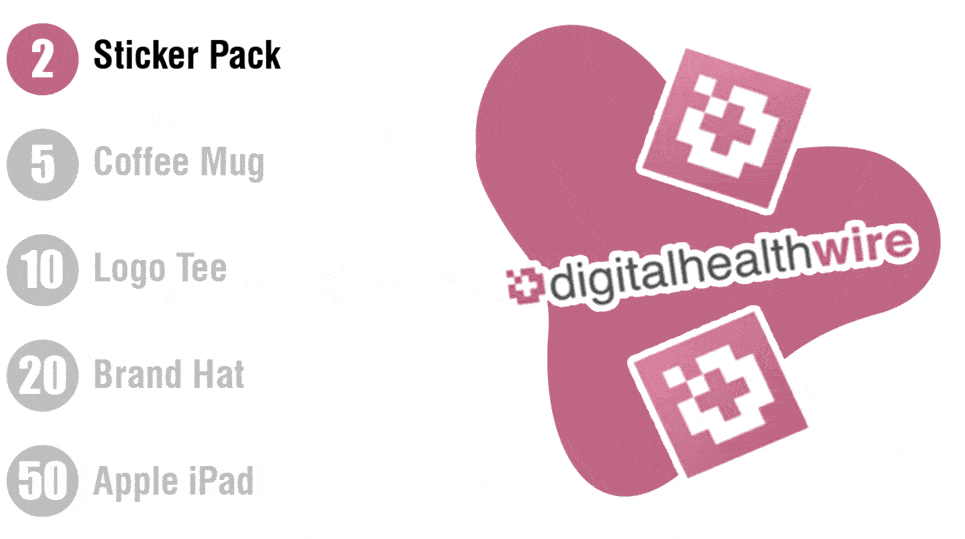|
Generative AI Priorities | Apple Watch X
August 17, 2023
|
|
|

|
|
Together with
|

|
|
|
“AI is not a panacea. An algorithm is not a solution.”
|
|
Lucem Health CEO Sean Cassidy
|
|

|
|
Bain & Company is back at it again with more generative AI research, this time offering a series of ways for providers to get the most out of the tech without falling into potholes of hype.
The in-depth report gives a comprehensive overview of the current generative AI landscape, and delivers solid insight into the priorities of health system executives (N=94):
- Top use case priorities (next 12 months): charge capture & reconciliation (39), structuring & analysis of patient data (37), workflow optimization (36). [Chart 1]
- Top use case priorities (2-5 years): predictive analytics & risk stratification (44), clinical decision support (41), diagnostics & treatment recommendations (37). [Chart 2]
- Biggest barriers to implementation: resource constraints (46), lack of technical expertise (46), regulatory & legal considerations (33). [Chart 3]
Start small to go big. Although the survey itself included some valuable stats, the spotlight was stolen by Bain’s particularly pragmatic framework for guiding new implementations.
- Pilot low-risk applications with a narrow focus. Bain found that the systems already seeing the most success with generative AI are testing solutions in low-risk use cases where they already have the right data and can create tight guardrails (chatbot support, scheduling, rev cycle).
- Decide to acquire, partner, or build. Bain recommends that CEOs think about different use cases based on availability of third-party tech and importance of the initiative.
- Funnel experience into bigger initiatives. As generative AI starts to mature, organizations that gain experience and strategy alignment today will be best positioned for the more transformative use cases once they become clear.
- Generative AI isn’t a strategy unto itself. Bain found that the trait separating top CEOs is their discipline, ensuring that every generative AI initiative reinforces their overarching goals as opposed to implementing shiny bells and whistles.
The Takeaway
It’s easy to get caught up in the generative AI hype cycle, so it was refreshing to see Bain recommend the one-foot-in-front-of-the-other approach to new implementations. Nearly every hospital boardroom is debating a massive list of potential AI investments, and although the home run use cases will be here soon, the consensus strategy for getting on base seems to be making low-risk plays with an immediate impact.
|




|
|
Glooko Outcomes Using Real-World Data
Modern diabetes management requires personalized, always-on, and connected care. Explore Glooko’s latest clinical studies to see how remote patient monitoring is making real-word improvements across multiple glycemic outcomes.
|
|
What is Patient Engagement for a CMIO?
In its patient engagement guide for hospital execs, Nuance examines the goals and challenges of Chief Medical Information Officers, highlighting the ways that AI-powered patient engagement solutions can help CMIOs reduce physician burnout and improve care delivery.
|
|
Looking for a Way to Offload Clinical Operations?
Looking for a way to offload clinical operations? Medallion is here to help. Tune into Medallion’s Demo Day on August 23rd to have the product team walk you through the platform’s key capabilities and answer your specific workflow questions through live demos and Q+A sessions.
|
|
- Apple Watch X: Apple might have finally cracked the code on the holy grail of wearable health tech: blood pressure tracking. Bloomberg is reporting that the long-awaited feature will make its debut to celebrate the 10th anniversary of the world’s most popular wearable, with the “Watch X” promising to deliver the largest overhaul in the Apple Watch’s history when it’s released in September 2024. The Watch X will supposedly fit BP tracking into a significantly thinner watch by redesigning the strap locking mechanism, although it’s still too early for any supporting evidence from supply chain tipsters.
- Few Physicians Spread Misinformation: UMass researchers published an investigation into the amount of COVID misinformation that licensed physicians in the US shared on social media between 2021 and 2022, finding that just 52 doctors accounted for the majority of the damage. The study pairs nicely with this Washington Post analysis of state medical board disciplinary records, which found only 20 instances of doctors getting penalized for COVID misinformation despite nearly 500 complaints.
- Abridge Becomes Epic’s First Pal: Epic tapped generative AI startup Abridge to be the first “Pal” in its new “Partnership and Pals” program geared toward developing deeper EHR integrations with innovative solutions. Abridge’s automated clinical documentation and note-taking platform is now available directly within Epic workflows alongside “complete auditability,” meaning that any word in any note can be traced back to a transcript/audio of the conversation with a single click.
- The Hidden Fee For Doctors: A ProPublica exposé told the brutal tale of how it became common practice for payors to require doctors to fork up a 5% fee if they want to be paid electronically. The story is told through the lens of payment processor Zelis’ lobbying efforts against CMS, revealing how the company splits the revenue with payors while saddling doctors with another cost. Spoiler alert: CMS now believes its oversight extends only to payors, not to their “business associates.”
- Resources Hinder Data Activation: Arcadia’s State of Healthcare Analytics report revealed that 9-in-10 healthcare leaders believe access to quality data across all platforms is critical to performance, yet only 57% of an organization’s data is currently used in decision-making. The most significant barrier to investing in analytics platforms was unsurprisingly resources, with 71% citing competing priorities, 58% pointing to staffing challenges, and 47% listing budget.
- Cano Health on Life Support: Not even a full year after CVS looked into acquiring Cano Health, the MA-focused clinic operator reported that there is “substantial doubt” about its ability to survive the next year. Cano’s Q2 results included a 103.5% medical loss ratio (its medical costs were higher than its premiums collected), and it’s exiting several major markets to try and stay afloat. The ending to Cano’s drama-filled run as a public company isn’t looking too promising, especially compared to its VBC competition like Oak Street and One Medical.
- GLP-1 Patents: The pharma companies leading the obesity care overhaul with GLP-1 drugs are lawyering up to stretch their protection against generic competition. The manufacturers for 10 of the top GLP-1 medications filed a median of 19.5 patents for each product and secured 18.3 years of expected protection. Half of the protections related to the delivery device for the drugs as opposed to the drugs themselves, and considering recent reports that Wegovy also reduces cardiac event risks by 20%, plenty more patents could be on the way.
- MedArrive & Heartbeat’s Home Cardiology Alliance: Home care provider MedArrive is expanding to virtual cardiology through a new Medicaid-targeted alliance with Heartbeat Health. MedArrive can now connect CVD patients with Heartbeat Health’s virtual cardiologists, while MedArrive’s providers can coordinate care with Heartbeat cardiologists and health plan case management teams. This partnership seems on-trend for both companies, as MedArrive has launched similar alliances for virtual maternal and ophthalmology care and Heartbeat Health signed patient-targeted partnerships with Cleerly and Caption Health.
- Gender Shift in Early-Onset Cancer: The incidence of early-onset cancers (those in people younger than 50) grew a total of just 0.74% from 2010 to 2019, but a study in JAMA Network Open found that rate obscures pronounced gender differences. Among 562k early-onset cancer patients, researchers found an increase of 4.4% in women and a decline of 4.9% in men, driven primarily by higher incidence of breast and uterus cancers.
- Mayo Clinic MyChart Messages: We don’t cover every health system that starts charging for MyChart messages, but Mayo Clinic shared some noteworthy points when it told the Star Tribune that messages requiring clinical decision making will soon cost up to $50. Mayo clinicians apparently received 6.4M patient messages in 2022, with volume and complexity each “increasing really exponentially.” Patient questions about appointments or prescriptions are still excluded, and Mayo is currently looking into using AI to triage the messages.
- Is AI Bad for the Planet? New research in European Radiology found that the computer horsepower required to train a large language model the size of GPT-3 has the same carbon footprint as 262 people taking a roundtrip flight from New York to Munich, or leaving an MRI machine running for 9.5 years. Given that those emissions don’t even include the extra compute required to interact with the model, the authors urge a shift toward centralized data centers powered by renewable sources.
|
|
Clear Arch Health Reduces Readmissions at Altru
When Altru Health System set out to reduce hospital readmissions, it turned to Clear Arch Health to find the solution. Learn how Clear Arch Health’s complete RPM platform and clinical monitoring system helped Altru lower readmissions while improving post-acute care quality.
|
|
The New Staffing Landscape With connectRN
Flexibility is a key component of enabling nurses to deliver their best care without getting burned out. In this Digital Health Wire Q&A, we sat down with connectRN CEO Ted Jeanloz to discuss technology’s role in solving healthcare’s staffing challenges and the new ways that human-centered design can help support nurses.
|
|
Upgrade Your Prescribing Workflows
Whether you’re a care delivery organization or building products that have prescribers, there’s no need to build your prescribing workflow from scratch. Find out how connecting your prescribers to clinical decision support powered by real-time drug data can help provide the patient-centered insights needed for medication success.
|
|
|
Share Digital Health Wire
|
|
Spread the news & help us grow ⚡
|
|
Refer colleagues with your unique link and earn rewards.
|

|
|
|
|
Or copy and share your custom referral link: *|SHAREURL|*
|
|
You currently have *|REFERRALS|* referrals.
|
|
|
|
|